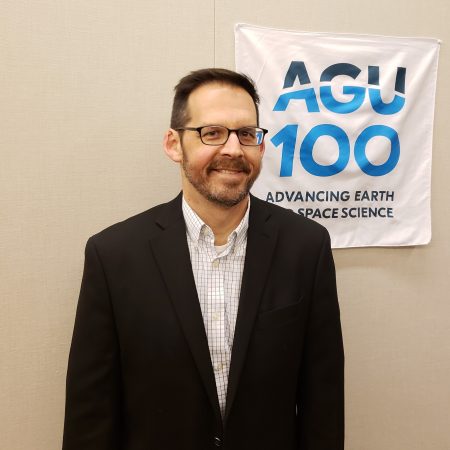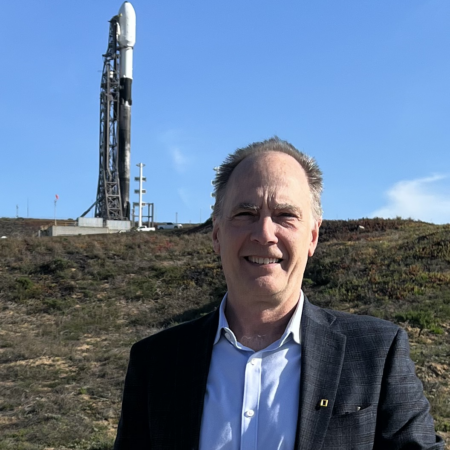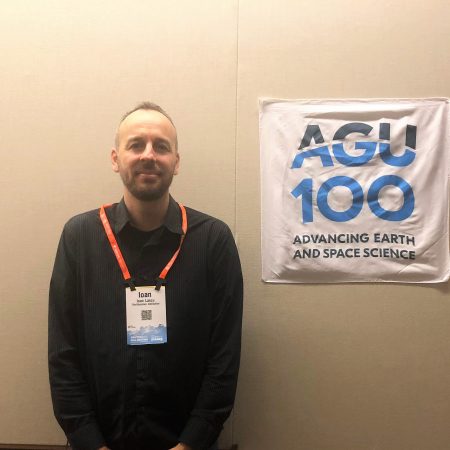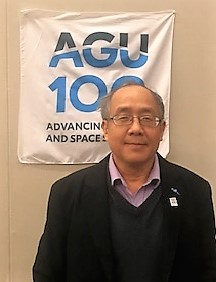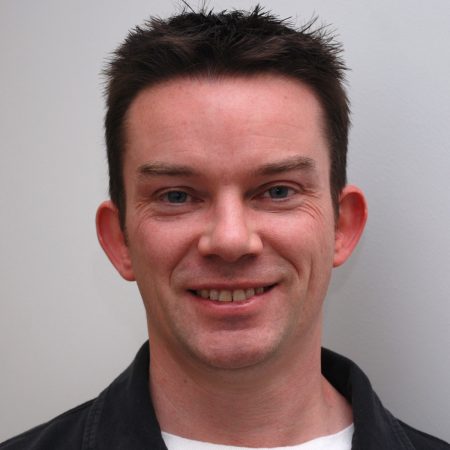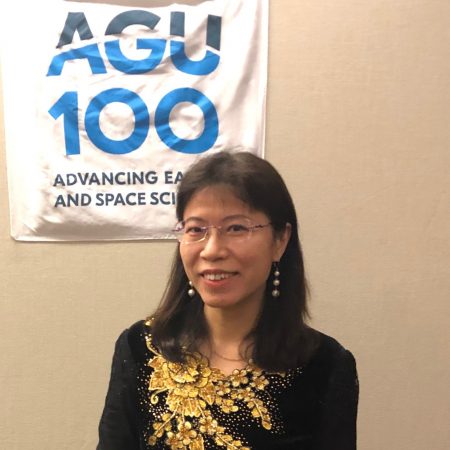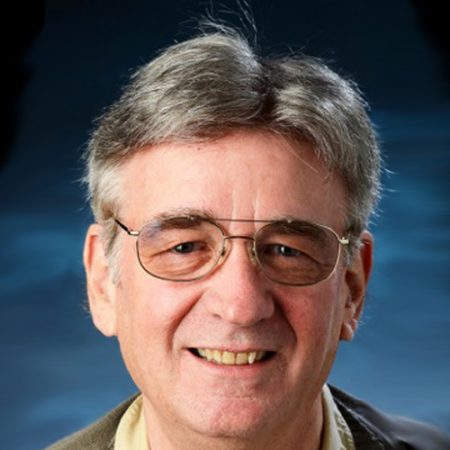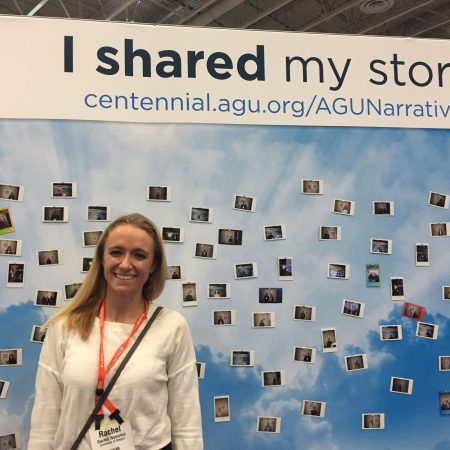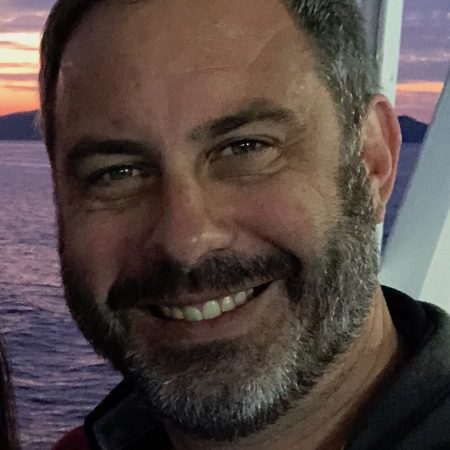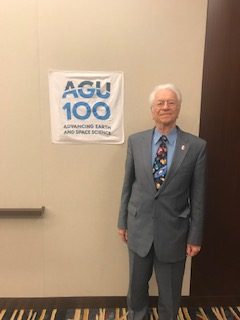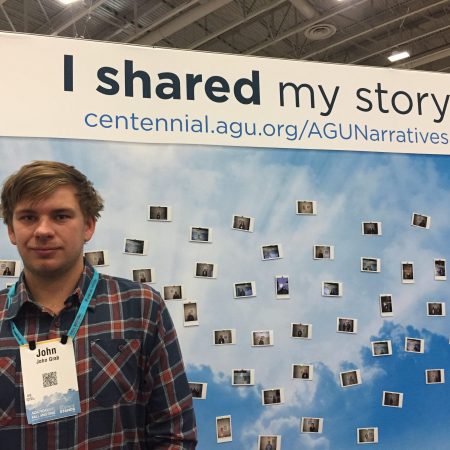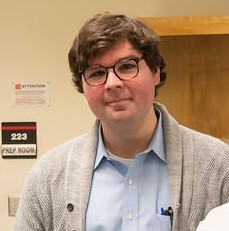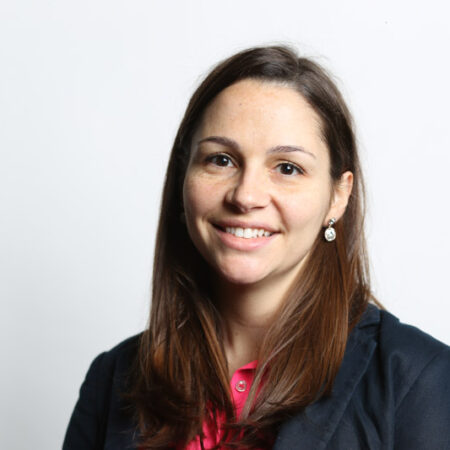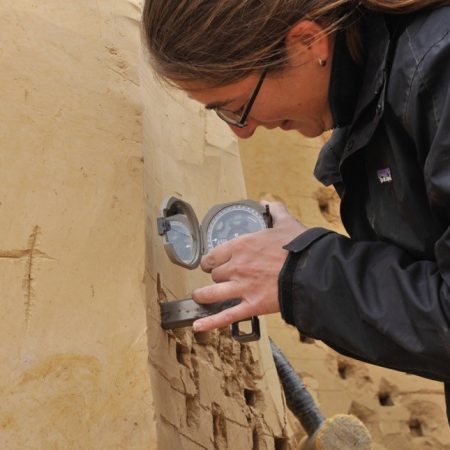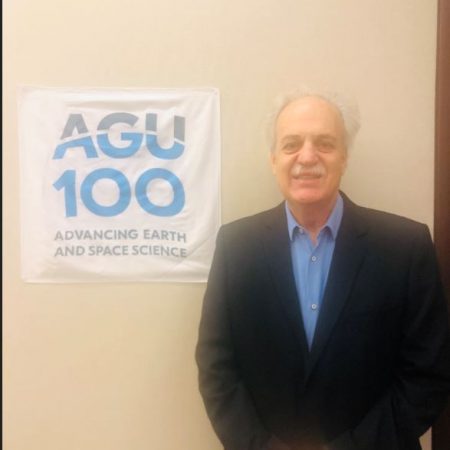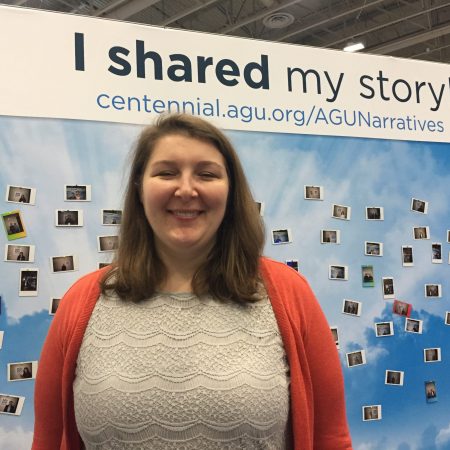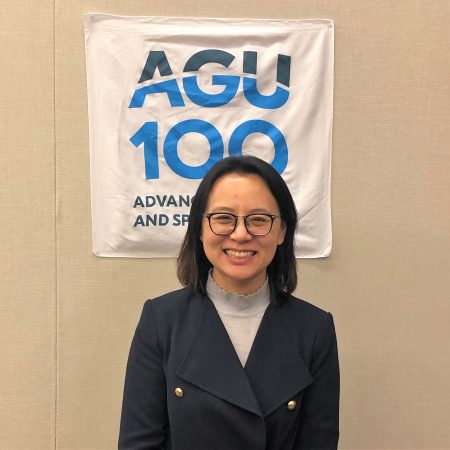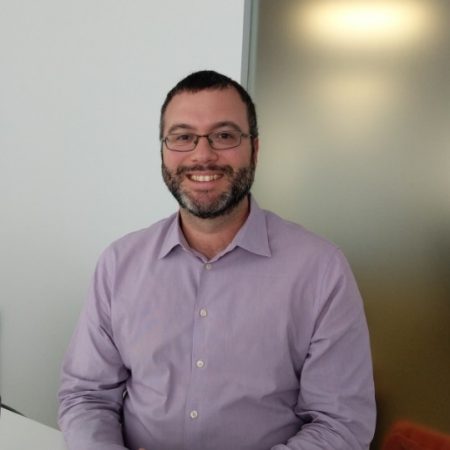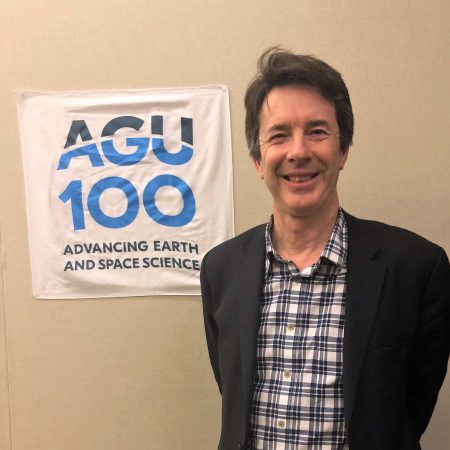Refine
Date Range Clear
Recorded by Clear
Keywords Clear
Partnerships Clear
- No matching terms.
Organizations Clear
- American Geophysical Union 67
- NASA 18
- National Aeronautics and Space Administration 9
- The American Geophysical Union 5
- American Geopysical Union 4
- 14 more
Places Clear
- AGU 2018 Fall Meeting 167
- Washington DC 164
- AGU 2019 Fall Meeting 22
- San Francisco 21
- AGU 2017 Fall Meeting 5
- 11 more
Languages Clear
Initiatives Clear
- No matching terms.
Lawrence Friedl discusses his life and experiences as Director of the Applied Sciences Program in the Earth Science Division at NASA Headquarters. Interested in space from a young age, he developed an interest in how the environment and public policy...
Duane Waliser’s path in science meandered from an Oregon apple farm to a UCSD Oceanography institute to NASA’s Jet Propulsion Laboratory, where he now serves as the Chief Scientist for the Earth Science and Technology Directorate. At JPL, Duane helps...
Ioan Lascu, research geologist at the Smithsonian Museum of Natural History, shares stories of his work studying minerals and rock magnetism. What do bacteria affect magnetism? What can we learn from stalagmites and stalactites? Why has there been in a...
When Quinyan Duan was a student in China, he found his way into hydropower engineering. He wanted to pursue a graduate degree but couldn’t find the right professor to guide him. He took the difficult step of applying in the...
After being drawn to the oceans at an early age, Paula continues to examine many factors that influence changes in the oceans. As a program manager for NASA, she enjoys the opportunity to work with dedicated researchers and learn how...
Conor Nixon, a space scientist at NASA--Goddard Space Flight Center, discusses his work studying the outer planets. Watching the Cosmos show growing up interested him in the solar system and he's been studying the outer planets most of his life....
Mei Zheng studies and teaches atmospheric science at Peking University. She’s passionate about training the next generation of scientists, and ensuring that everyone has access to clean air. “A teacher’s job is to encourage, inspire, and challenge students to do...
Michael King is a Senior Research Associate in the Laboratory for Atmospheric and Space Physics at the University of Colorado. He previously worked at NASA for 3 decades in a variety of roles, including Senior Project Scientist of NASA’s Earth...
Rachel Hampton ended up in the geosciences because she couldn’t find the art history class she was looking for. From asking a TA if she could join him on fieldwork to doing her senior thesis on volcanoes without a professor...
Jeremy Werdell, an Oceanographer in the Ocean Ecology Laboratory at NASA Goddard Space Flight Center, discusses his lifelong passion for studying the ocean, which started with a school field trip to a marine biology lab. He describes how happening to...
Tom Krimigis works at the Johns Hopkins University Applied Physics Lab, and was previously the principal investigator for the Voyager I and Voyager II missions. A student of Van Allen, Tom built detectors to search for Van Allen belts on...
John Booker Grab grew up in New Mexico and remembers, at the age of 8, running out the back door into the Santa Fe National Forest to go and collect fossils. He then went on to study at Montana State...
Rafael Loureiro may confess to being an introvert, but he has no fear of people. He started off talking about AGU’s Voices of Science bootcamp, which he is participating in this year to develop his spokesperson skills. That segued into...
Dr. Alex Lockwood is the project scientist on the science communication team for the James Webb Space Telescope at the Space Telescope Science Institute. While earning her Ph.D. in Planetary Astronomy and Science, Alex had the unique opportunity to star...
France Lagroix, Research Scientist at Institut de Physique du Globe de Paris and AGU Leader share stories of her passion and the value of paleomagnetism. She talks of the discovery during her Ph'd research where she developed a novel application...
Carlos Nobre is a climate scientist with the Institute of Advanced Science in Brazil. Together with twelve hundred scientists, he organized the largest scientific experiment in the Amazon forest, with eleven research towers analyzing water vapor, carbon dioxide, energy balance,...
Imagine this upbringing: only child, suburbs of Maryland, daughter of a mathematician and a pastry chef. If you guessed that child would achieve a management role with NASA’s famed IceBridge2 mission, congratulations, you truly have exceptional foresight. Linette Boisvert McPartland...
Erica Bickford’s advice to early career scientists or students is to look outside academia and explore all the potential career options available to scientists. She is particularly aware of the importance of science in daily life and in the policy...
Emily Schaller, project manager at NASA's National Suborbital Research Center at Ames, discusses her Ph.D. work studying the clouds on Titan and her work as a science and education. She recalled how as a young child, she would study illustrations...
Roberta Rudnick, Professor at University of California Santa Barbara, was captivated by science from a young age, witnessing the Mt. Saint Helens eruption while in college, and traveling the globe to understand plate tectonics, and how and why continents form...
Paul Newman, Chief Scientist for Earth Science at NASA Goddard Space Flight Center and the co-chair to the Montreal Protocol, is one of the planet’s top ozone watchdogs – a self-described detective who looks for any chemicals which may deplete...
From her teaching position at National Taiwan University, Haojia Abby Run is studying nitrogen-related pollution by fossil fuels and fertilizers and warning people in Taiwan of its damage to the ocean. A female Asian oceanographer, who grew up in China’s...
In begin in 1979, when Margaret Kivelson, UCLA, was part one of three women presenting a talk in which Fran Bagenal, University of Colorado Boulder, was sitting in the audience. They have been space scientists and collaborators for many years...
In this interview, part of the AGU Narratives project and AGU Paths Through Science, Juan Declet-Barreto discusses his work with the Union of Concerned Scientists, his involvement with the Thriving Earth Exchange (TEX), and the forces that shaped his path...
Chris Ballentine, University of Oxford, discusses his work as "helium hunter," seeking global reserves of Helium, significant as a natural resource-limited in its scope. Chris discusses geopolitics and the need for the market to drive the search for helium which...
